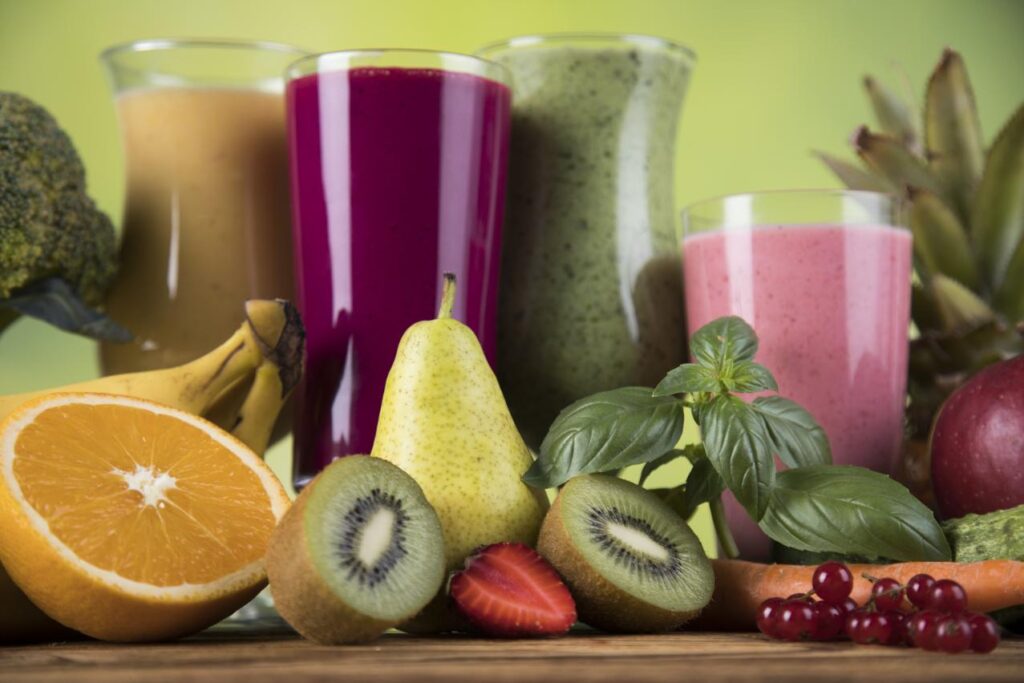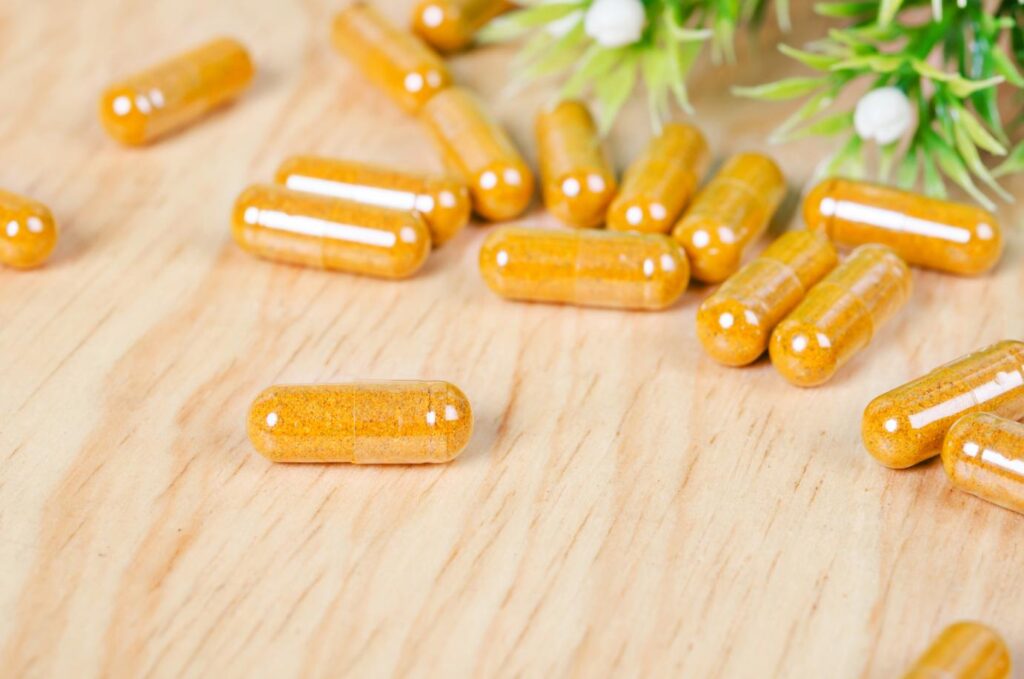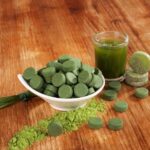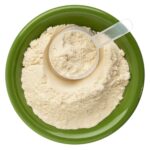Just a friendly heads-up! The information shared in this post is for general knowledge purposes only and should not be considered a substitute for professional medical advice. It’s crucial to talk to a healthcare professional before trying any new supplements. They can provide personalized guidance based on your unique needs and ensure they are safe for you. Remember, your health comes first, so consult with a qualified healthcare provider for the best advice tailored to you.
This article may contain compensated links. Please read Disclaimer for more info. As an Amazon Associate, I earn from qualifying purchases.

Table of Contents
Weighed down by that persistent clench of unease, you find yourself yearning for calmness and clarity.
You’re craving a life where the constant buzz of anxiety and self-doubt fades into a background hum. A life where your thoughts are peaceful and purposeful rather than racing in circles.
Imagine a way to gently quiet your mind. Not by numbing your senses, but by nurturing them, keeping you fully alert and present. Picture yourself confidently overcoming obstacles that have kept you from living your full potential.
If this resonates with you, amino acid therapy for anxiety might be the stepping stone you need. It is a journey toward greater stability. One that depends heavily on nutrition to balance your mental state.
Let’s explore how the amino acid therapy for anxiety could be the catalyst for a more balanced and confident you.

The Relevance of Amino Acids Anxiety Relief
Why explore non-traditional approaches to treating anxiety and mental health issues?
Anxiety disorders are the most common mental illness in the United States, affecting over 40 million adults. While there are various treatments available, one that has gained attention in recent years is amino acid therapy.
This natural approach to managing anxiety has shown astounding results, making it a popular choice when you are looking for alternative treatments.

Conventional Mental Health Treatment’s Drawbacks
If you’ve been on a long journey with anxiety, you’re likely familiar with the standard treatment route: a visit to the family doctor, a referral to a psychiatrist and then a prescription for some antidepressant medication. Or even anxiolytics like Xanax or Valium.
While these medications can be life-saving for many, they don’t come without their challenges. Some of us struggle with metabolic side effects, dependency issues or find that these medications simply don’t work. The process of switching from one medication to another can be excruciating.
There is no denying the limitations of traditional mental health treatments:
- Over-reliance on pharmaceuticals: Alongside psychotherapy, there’s a heavy focus on prescription drugs, which might not tackle the underlying causes of mental health issues and can lead to various side effects.
- Neglect of nutritional and biochemical factors: The impact of nutritional deficiencies and amino acid imbalances on mental health is frequently overlooked in these conventional approaches.
- One-size-fits-all approach: Many standard treatments fail to consider each individual’s unique biochemical and nutritional profile, which can result in less effective outcomes.
- Reactive rather than preventive: The typical approach tends to concentrate on treating symptoms as they manifest rather than employing preventive strategies through lifestyle and diet.
- Overlooking the gut-brain connection: The role of the gut-brain axis in mental health often doesn’t receive enough attention in conventional treatment plans.
- Limited treatment scope: There’s a noticeable gap in exploring a wider range of treatments, including lifestyle changes, dietary adjustments, and the use of supplements.
These shortcomings in conventional treatment underscore the need for a more expansive approach. Amino acids emerge as a promising tool that can help you improve your mental well-being.

Understanding Amino Acids for Mental Health
Amino acids are often called the building blocks of life, and rightly so.
They play a role in nearly all biological processes in our bodies, including the way our nervous systems and brains work. But how precisely do they affect our mental health and which amino acid helps with anxiety?
Let’s break it down. Our brain communicates through chemicals called neurotransmitters, which are largely made from amino acids.
Among the 20 different amino acids found in proteins, each has a unique chemical structure and function. Essential amino acids like phenylalanine, tryptophan, and tyrosine are essential for producing neurotransmitters such as serotonin, dopamine, and norepinephrine.
When these neurotransmitters are out of balance, it can lead to various mental health issues, including anxiety and depression.
Amino acid therapy for anxiety aims to restore this balance, providing the brain with the necessary components to produce these vital chemicals.
During amino acid therapy, you’ll take a tailored blend of amino acids. This combination is designed to boost neurotransmitter production, enhance their attachment to brain receptors, and improve overall function.
For most anxiety sufferers, this leads to improved mood, energy, focus, and well-being. Its safety and tolerability make it an appealing alternative to traditional treatments.

Effectiveness of Amino Acid Therapy for Anxiety
Amino acid therapy is making waves in mental health care as some of the best supplements to calm nerves. But it’s worth noting that its effectiveness varies from person to person. Here are some of the reasons:
- Diverse causes of anxiety: Anxiety, stress, and depression can have many different root causes. These can range from genetic factors to environmental influences, and each person’s experience with these conditions is unique.
- Customized treatment: Mental health management, be it with medication, herbs, or amino acids, requires a personalized approach. Tailoring treatment to individual needs is vital in amino acid therapy, integral to an overall treatment plan.
- Trial and error: Picking the right amino acid for anxiety can mean trying out different strategies. It’s all part of the journey to pinpoint the most effective way to manage your anxiety.
- Research Insights: Studies are showing that several amino acids can ease anxiety. But how well they work can depend on your body chemistry, how much you take, and how they play with other treatments you might be using.
Therefore, while amino acid therapy is a promising path for easing anxiety, remember that its success varies. Keeping an open mind and being ready to tailor your approach can lead you to the best strategy for your anxiety management.

What Amino Acids Help with Anxiety
Now, let’s delve into the specific amino acids that have shown promise in the management of anxiety. Make sure to consult with a healthcare provider before starting them, especially if you’re currently on antidepressants or other medication.
Our recommendations for amino acid supplements for anxiety are based on thorough research, safety and efficiency concerns and our own experience.
GABA for Anxiety and Sleep
- Nature’s relaxant: GABA (Gamma-Aminobutyric Acid) is known as an inhibitory neurotransmitter in the brain, meaning it plays a key role in reducing neuronal excitability throughout the nervous system and is therefore often hailed as the best amino acid for anxiety and sleep.
- Anxiety reduction: Studies have shown that GABA can help alleviate anxiety by calming the nervous system, making it effective when you’re struggling with an anxiety disorder and panic attacks.
- Mechanism of action: GABA works by binding to the GABA receptors in the brain, which promotes relaxation and reduces stress levels.
- Natural sources: GABA is found naturally in foods like fermented products, including kimchi, miso, and tempeh.
- Supplementation benefits: GABA supplements are often used to enhance mood, relieve anxiety, and improve sleep.
- Supplement recommendations:
Dr. Amen BrainMD GABA Calming Support

Consider Dr. Amen BrainMD GABA Calming Support if you’re looking for a natural way to manage anxiety. This GABA supplement, with its blend of Vitamin B6, Magnesium, and Lemon Balm, is specifically designed to help you find a sense of calm and maintain mental clarity. Each bottle contains 90 capsules, offering a convenient addition to your daily routine. Produced in FDA-registered facilities, it adheres to the highest quality and purity standards.
L-Theanine for Anxiety and Depression
- Relaxation without drowsiness: L-Theanine is known for its ability to promote relaxation without causing drowsiness, making it a great amino acid for anxiety and depression when you’re seeking relief without sedative effects.
- Enhances mental focus: While it relaxes the mind, L-Theanine also helps improve focus and concentration. It is often used to alleviate anxiety while enhancing cognitive abilities.
- Found in green tea: This amino acid is most commonly found in green tea, providing the unique calming effect of the beverage.
- Impact on neurotransmitters: L-Theanine influences neurotransmitters in the brain, including increasing levels of GABA, serotonin, and dopamine, which play a role in mood, sleep, and emotion regulation.
- Reduces stress and anxiety: Studies suggest that L-Theanine can help reduce stress and anxiety in people exposed to stressful conditions.
- Supplement recommendations:
NutraChamps L-Theanine

NutraChamps L-Theanine 200mg Capsules could be a valuable addition to your daily routine when you’re navigating the challenges of anxiety. These capsules are designed to support mood and focus, offering a unique blend of Vitamin D3 and organic coconut oil for enhanced absorption. The formulation is vegan-friendly and comes in a fast-acting liquid capsule, ensuring you get the benefits quickly and effectively. Each bottle contains 60 capsules. Whether you’re looking to unwind after a long day, keeping anxiety and panic at bay, or seeking to maintain a calm, focused mind, NutraChamps L-Theanine is a natural, effective solution.
Tryptophan for Anxiety and Stress Relief
- Mood and sleep regulation: Tryptophan is crucial for producing serotonin and melatonin, neurotransmitters that significantly influence mood, cognition, behavior, and the sleep-wake cycle. For many sufferers, it’s the first choice when using amino acids for anxiety and sleep.
- Association with mood disorders: Studies have shown that low levels of tryptophan are linked to mood disorders like depression and anxiety. Altering tryptophan levels can significantly impact your mood and stress responses.
- Cognitive effects: Tryptophan levels are also tied to cognitive functions. Lower levels can impair memory and learning, affecting cognition and memory linked to events and experiences.
- Serotonin production: Tryptophan is converted into 5-HTP in the body, which then forms serotonin. This process is vital for the proper functioning of the brain, and low tryptophan levels reduce serotonin in the body.
- Impact on melatonin and sleep: Tryptophan is directly involved in increasing serotonin and melatonin levels, influencing the body’s sleep-wake cycle. Increasing tryptophan intake can improve your sleep quality and quantity.
- Dietary sources and supplementation: Tryptophan is found in protein-containing foods, and typical diets provide about 1 gram per day. Supplements of tryptophan, 5-HTP, and melatonin are available and can be used to target specific symptoms like poor sleep or mood disorders.
- Supplement recommendations:
Superior Labs L-Tryptophan Supplement

Superior Labs L-Tryptophan Supplement offers a natural approach to enhancing your mood and sleep quality. This supplement is our top choice due to its purity and potency, free from artificial additives and fillers. When I used it on myself, I saw significant reductions in anxiety, general mood, and stress levels. Each bottle contains 500mg, a substantial dose of L-Tryptophan, ideal for promoting restful sleep and improving mood. Whether you’re dealing with daily stressors or looking for a natural sleep aid, Superior Labs L-Tryptophan provides a clean, effective solution to help you feel more relaxed and rejuvenated.
5-HTP for Anxiety and Mood
- Serotonin production: 5-HTP (5-Hydroxytryptophan) is an amino acid that the body naturally produces and uses to create serotonin, a key neurotransmitter that influences your mood, anxiety, and sleep disorders.
- Weight loss and appetite control: 5-HTP may help in weight loss by increasing feelings of fullness, leading to reduced calorie intake and potentially aiding in weight management.
- Depression and mood enhancement: While the exact relationship between serotonin and depression is complex, 5-HTP supplements have been shown to alleviate depression by increasing serotonin levels, which improves symptoms of depression.
- Fibromyalgia relief: Early evidence suggests that 5-HTP may improve symptoms of fibromyalgia, including muscle pain, sleep problems, anxiety, and fatigue, though more research is needed.
- Migraine reduction: 5-HTP has been studied for its potential to reduce the frequency of migraines, which are believed to be linked to low serotonin levels.
- Sleep improvement: By increasing serotonin production, which can be converted into melatonin, 5-HTP can promote better sleep quality and duration.
- Supplement recommendations:
Natrol 5-HTP 100mg Time Release Tablets

Natrol 5-HTP 100mg Time Release Tablets offer a natural and effective way to support a balanced mood and overall well-being. It is free from common allergens and suitable for vegetarians. Each bottle contains 90 tablets, providing a 45- to 90-day supply, depending on your usage. With 100mg of 5-HTP per serving, this supplement significantly promotes the production of mood-enhancer serotonin.
The time-release formula ensures a steady release of 5-HTP throughout the day, helping you maintain a consistent sense of calm and well-being. Natrol 5-HTP is a 100% drug-free dietary supplement, making it a safe choice when you’re seeking a natural approach to easing anxiety and stress. From our standpoint, it ranks among the best amino acid supplements for mental health.
L-Lysine for Anxiety and Calmness
- Anxiety reduction: L-Lysine may play a role in reducing anxiety. Studies have shown that it can block receptors involved in the stress response, potentially lowering anxiety levels.
- Stress hormone influence: Research indicates that L-Lysine supplementation can reduce levels of the stress hormone cortisol. This can have a calming effect if you’re experiencing high stress or anxiety.
- Combination with arginine: Some studies have used a combination of L-Lysine and arginine to effectively reduce stress-induced anxiety and lower cortisol levels.
- Potential in schizophrenia treatment: Early research suggests that L-Lysine may improve symptoms of schizophrenia when used in combination with prescribed medications, though more research is needed in this area.
- Role in collagen formation: L-Lysine is essential for the formation of collagen, a protein that supports skin and bone structure, which can be beneficial to your overall health and well-being.
- Sources and supplementation: L-Lysine is found in protein-rich foods like meat, fish, and dairy. Consider a supplement for additional benefits, especially if you’re dealing with high stress levels.
- Supplement recommendations:
Country Life L-Lysine Advanced Capsules

Country Life L-Lysine Advanced Capsules could be just what you need for boosting your immune system, enhancing cognitive function, and reducing stress hormone levels. With a potent 1500mg dose of L-Lysine in each of the 180 capsules, complemented by Vitamin D and Elderberry, this supplement is designed to support your overall health. It’s free from artificial additives and is certified gluten-free and vegan, making it a clean and effective choice for managing stress and maintaining cognitive health. Consider adding it to your daily routine to naturally support your mental well-being and immune system.
L-Arginine for Anxiety and Immune Response
- Role in nitric oxide production: L-Arginine plays a key role in the synthesis of nitric oxide, which is a molecule that is vital for controlling blood flow, mitochondrial activity, and cellular communication.
- Immune system support: It’s involved in the development of T-cells, white blood cells central to the immune response, which can indirectly influence your overall well-being and stress management.
- Athletic performance enhancement: Some studies suggest that L-Arginine supplements can enhance your exercise performance by increasing nitric oxide, improving blood flow and oxygenation to muscles.
- Blood pressure regulation: L-Arginine can help if you’re struggling with high blood pressure due to nitric oxide production, necessary for blood vessel relaxation and blood pressure regulation.
- Blood sugar regulation: It may also be beneficial for those with diabetes by improving glucose metabolism and insulin sensitivity, contributing to overall health and stress management.
- Supplement recommendations:
NusaPure L-Arginine 1000 mg

NusaPure L-Arginine 1000 mg capsules could be a great addition to your daily health regimen, especially if you’re looking to enhance heart health and manage stress. With each bottle offering 200 veggie capsules, you get a 100-day supply of these non-GMO, vegetarian, and gluten-free amino acids for mood support. L-Arginine is known for boosting nitric oxide production, which helps improve blood flow and cardiovascular health. This can lead to better stress management and overall well-being. Made in the USA, these capsules are a reliable choice for supporting your physical and mental health.
L-Glutamine for Anxiety and Gut Health
- Supports digestive and immune systems: L-Glutamine is an important component of the body’s immune and digestive systems, which in turn can have an indirect impact on stress reduction and mental health.
- Critical for intestinal health: L-Glutamine is one energy source for intestinal and immune cells and helps maintain the barrier between the intestines and the rest of the body, protecting against leaky gut.
- Role in immune function: L-Glutamine is essential for the proper functioning of your immune cells, including white blood cells, which can be compromised during times of high stress or illness.
- Muscle gain and exercise performance: While primarily known for its benefits to gut health, L-Glutamine has also been studied for its potential effects on muscle gain and exercise performance, which can indirectly affect stress and anxiety levels.
- Dietary sources: L-Glutamine is found in a variety of foods, including both animal and plant sources, making it accessible through a balanced diet.
- A word of caution: Research on L-glutamine treatment for mental health issues is still in its early stages, and some patients experience negative side effects. Make sure to speak with your physician before taking any L-glutamine supplements.
- Supplement recommendations:
NusaPure’s L-Glutamine 1000mg

If you’re exploring supplements for anxiety and depression, NusaPure’s L-Glutamine 1000mg Capsules could be a valuable addition to your regimen. These capsules are designed to support gut health, which plays a crucial role in your mental well-being due to the gut-brain axis connection. By improving gut health, you may experience benefits in managing symptoms of anxiety and depression. The link between a healthy gut and mental health is well-recognized, making L-Glutamine an ideal choice.
Phenylalanine for Anxiety and Brain Function
- Essential amino acid: Phenylalanine is an essential amino acid, meaning it cannot be produced by the body and must be obtained from the diet. It is found in high-protein foods like eggs, dairy, meat, and soy products.
- Precursor to neurotransmitters: It’s key for the production of several molecules, including tyrosine, which is directly converted from Phenylalanine. Tyrosine is then used to produce neurotransmitters like dopamine, epinephrine, and norepinephrine, which are vital for mood regulation and stress responses. This makes Phenylalanine one of the best amino acids for mental health.
- Mood and brain function: The dysfunction of neurotransmitters produced from Phenylalanine can lead to negative health effects, such as depression. Phenylalanine has been studied for its link to major depressive disorders, indicating its potential role in mood regulation.
- Safety: Phenylalanine is generally recognized as safe and is found in many protein-containing foods. However, it can be dangerous for people with phenylketonuria (PKU), a disorder that impairs the body’s ability to metabolize phenylalanine.
- Diverse Food Sources: Phenylalanine is present in a variety of foods, including meat, fish, poultry, eggs, dairy, nuts, seeds, and legumes, making it accessible through a balanced diet.
- Supplement recommendations:
BESTVITE’s DL-Phenylalanine 500mg

BESTVITE’s DL-Phenylalanine 500mg capsules might be exactly what you need when looking for reliable supplements for anxiety. With 120 vegetarian capsules per bottle, this supplement is specifically formulated to support your mood. It’s a great choice if you’re seeking a natural way to enhance your mental wellness. The capsules are vegan, gluten-free, and non-GMO, ensuring you’re getting a pure and high-quality product. Manufactured in the USA under strict GMP standards, BESTVITE’s DL-Phenylalanine is a reliable option to consider in your journey towards better managing anxiety.
Amino acid combination supplement recommendations
Clean Nutraceuticals Amino Acids

Clean Nutraceuticals offers a potent mood support supplement, ideal if you’re addressing anxiety. This all-in-one formula includes GABA, L-Tryptophan, 5-HTP, L-Theanine, Ashwagandha, SAM-e, and L-Glycine. With 60 capsules per bottle, it’s designed to enhance mood, reduce stress, and promote overall mental wellness. This comprehensive blend targets various aspects of mental health, making it a convenient choice for natural mood support.
NEVISS Melatonin Free Sleep Aid Gummies

NEVISS Melatonin Free Sleep Aid Gummies, with GABA, L-Tryptophan, Magnesium, and Ashwagandha, offer a natural, vegan solution for better sleep and stress management. Each bottle contains 60 Meyer Lemon flavored gummies, designed to improve sleep quality and mood without forming habits. Made in the USA, these gummies are perfect if you’re seeking a melatonin-free, refreshing way to wake up rejuvenated.
Nature’s Nutrition Calm & Stress Support Supplement

Nature’s Nutrition Calm & Stress Support Supplement, with its blend of Magnesium, Ashwagandha, 5-HTP, L-Theanine, and GABA, offers a natural way to manage stress and enhance mood. Each bottle contains 120 vegan, non-GMO capsules, making it a convenient addition to your daily routine for relaxation and focus. This supplement is a great choice if you’re looking for comprehensive mood support with quality ingredients.

Steps for Implementing Amino Acid Therapy
When you’re looking into integratingthe best amino acids for anxiety and depression into your stack, there are a few steps you’ll want to follow to make sure it works well for you. Let’s go through some practical tips:
- Start with a consultation: Make sure to talk to a healthcare professional before you start your amino acid anxiety journey. A doctor or a nutritionist can assess your overall health using an amino acid therapy chart, any medications you’re already on and what you specifically need. They’ll help you tailor a therapy plan that aligns with your individual health requirements.
- Look at other factors: During your consultation, consider other potential underlying causes of anxiety. This includes checking thyroid function, fasting blood sugar levels, and evaluating for sleep disorders, adrenal disorders, and hormone imbalances.
- Watch how your body reacts: Everyone’s different when it comes to how their body handles amino acid therapy. Keep an eye on any changes in how you feel, such as your mood or energy levels. This will help you and your doctor tweak the treatment to suit you best.
- Be patient: Remember, seeing results from amino acid therapy can take some time. Stick with it and have realistic expectations about how quickly you’ll see changes. Some amino acids might work faster than others.
- Regular monitoring and adjustments: Stay in touch with your healthcare provider to keep track of how things are going. This is an opportunity to discuss any side effects, review the effectiveness of the treatment, and make necessary adjustments to the therapy plan.
To get the most out of your amino acid therapy, combine it with other healthy habits. Staying active, getting good sleep, and managing stress all play a part in your overall well-being.

Amino Acids and Anxiety: Dietary Sources
Amino acids that help with anxiety are readily available in the foods you might want to consume every day. Including these nutrient-rich natural sources will help you overcome anxiety much more successfully and supercharge your amino acid efforts.
- Lean meats and poultry: Chicken, turkey, and lean cuts of beef and pork are rich in amino acids such as tryptophan, which is known for its role in serotonin production, and phenylalanine, which is a precursor to the neurotransmitter dopamine, both crucial for mood regulation.
- Fish and seafood: Fatty fish like salmon, mackerel, and trout, as well as shellfish, are packed with amino acids including Taurine, Lysine, and Methionine. They also provide omega-3 fatty acids, which are important for brain health and cognitive function.
- Dairy products: Milk, cheese, and yogurt primarily offer Tryptophan, vital for serotonin synthesis, which can help stabilize mood. It is considered the best amino acid for depression and anxiety as a natural food source by many practitioners. Dairy also contains other mood-supportive nutrients like calcium and vitamin D.
- Eggs: Eggs are a rich source of various amino acids, including Leucine, Isoleucine, and Valine, which are branched-chain amino acids important for muscle protein synthesis and overall body function.
- Legumes and beans: Legumes and beans, ideal for plant-based diets, provide a good mix of amino acids, including Lysine, Arginine and Glutamine, which support gut health and immune function.
- Nuts and seeds: Almonds, walnuts, flaxseeds, and chia seeds contain amino acids such as Arginine and Histidine, along with healthy fats and antioxidants, contributing to overall well-being.
- Whole grains: Quinoa, oats, and brown rice are sources of amino acids like Methionine and Cysteine, along with fiber and B vitamins, which aid in energy production and brain health.
- Soy products: Tofu, tempeh, and edamame, being plant-based, provide all essential amino acids, making them complete protein sources. They are particularly rich in Lysine and Tryptophan.
- Green leafy vegetables: Spinach and kale provide amino acids such as Glutamine and aspartic acid, and are also rich in folate, a B vitamin that supports mood regulation and overall brain health.
- Fruits: Bananas and avocados offer amino acids including Tyrosine and Tryptophan, along with nutrients like potassium and vitamin C, which support overall health and stress management.
Incorporating these foods into your diet enhances your amino acid therapy for anxiety, supercharging your mental and physical well-being. By choosing these natural sources, you also gain extra vitamins, minerals, and beneficial compounds that support overall health.

The Future of Natural Anxiety Treatments
Amino acid therapy is developing in tandem with the methods used to treat anxiety. Research and new developments are influencing innovative approaches to managing anxiety, with amino acid therapy playing a key role.
A move toward customized medicine is one of the main trends. Recognizing that each person’s experience with anxiety is unique, treatments are increasingly being tailored to specific biochemical makeups. This approach, which includes considering genetic factors, lifestyle, diet, and gut microbiota, aligns well with amino acid therapy.
The study of the gut-brain axis is also gaining traction. Research shows that probiotics, prebiotics, dietary changes and the inclusion of certain amino acid-rich foods can alleviate anxiety symptoms. L-Glutamine is especially important for gut health, as it supports the intestinal lining and influences the gut-brain axis, which is fundamental for mental well-being.
Likewise, herbal remedies rank among the best anxiety supplements when you’re looking for a natural approach. Future studies on the molecular mechanisms underlying these anxiety supplements are on the way. The goal? Creating formulations that are more effective in providing better relief while minimizing side effects.

Start Nurturing Inner Calm with Amino Acids
Amino acid therapy for anxiety isn’t a cure-all, but it’s brimming with potential.
It comes with so many benefits: natural, safe, minimal side effects, ideal for long-term use. Additionally, amino acid therapy can improve your overall brain function, leading to better cognitive abilities and increased energy levels.
As research evolves, we’re gaining deeper insights, so much so that even traditional psychiatrists are taking a second look at this nutrition-based approach.
If you’re drawn to these benefits, remember, it’s not a solo journey. Team up with a knowledgeable practitioner, whether it’s a nutritionist, a naturopath, or a forward-thinking psychiatrist. Get all the necessary tests done, then dive in with commitment.
Stay the course, and you might just be pleasantly surprised by the advantages you’ll discover.

Frequently Asked Questions
How Does Amino Acid Therapy Help with Anxiety?

Amino acid therapy targets the fundamental imbalance of neurotransmitters, a common cause of anxiety. By replenishing the body’s amino acids, it stabilizes neurotransmitter levels, which can enhance mood and alleviate anxiety. This therapy also addresses related issues like sleep disturbances, energy levels, and mood fluctuations often linked with anxiety.
What is the best amino acid for anxiety?
The best amino acid for anxiety is generally considered to be Gamma-Aminobutyric Acid (GABA). GABA is a neurotransmitter that helps to calm the nervous system and reduce anxiety. It is naturally produced in the body and can also be taken as a supplement.
What are the long-term effects of amino acid therapy for anxiety?

The long-term effects of amino acid therapy for anxiety include sustained mood improvement and reduced anxiety symptoms. Over time, this therapy can lead to a more balanced brain chemistry. It is considered a safe and effective long-term treatment option.
Can amino acid therapy replace conventional anxiety medications?
Amino acid therapy can be an effective alternative to conventional anxiety medications for some individuals, particularly for those with mild to moderate symptoms. It works by balancing brain chemistry naturally, without the side effects often associated with pharmaceuticals. However, in cases of severe anxiety symptoms, conventional psychotropic medication may still be necessary, and it’s important to consult a healthcare provider before making any changes to medication.
Are there any age restrictions for amino acid therapy?
Amino acid therapy can be used by people of all ages, but dosage and specific amino acids might vary based on age and health conditions. It’s especially important for children and elderly individuals to consult healthcare providers. The therapy should be tailored to individual needs and health profiles.
How quickly can you expect results from amino acid therapy?

Results from amino acid therapy can vary; some individuals may notice improvements within a few weeks, while others might take longer. Consistent use and proper dosage are key to effective results. The time frame can also depend on the severity of the anxiety symptoms.
Is amino acid therapy effective for all types of anxiety disorders?

Amino acid therapy can be effective for various types of anxiety disorders, but its efficacy may vary. Individual responses to the therapy can differ based on the specific disorder and the person’s biochemistry. It’s important to have a personalized approach for the best results.
Can amino acid therapy help with anxiety-related sleep disorders?
Amino acid therapy can be beneficial for anxiety-related sleep disorders. Amino acids like Tryptophan, Glycine, and GABA are especially helpful in regulating sleep patterns and reducing anxiety, thereby improving sleep quality. This natural approach effectively addresses both anxiety and sleep issues, providing a holistic treatment option.
Are there any dietary restrictions while undergoing amino acid therapy?

There are no specific dietary restrictions required during amino acid therapy, but a balanced diet can enhance its effectiveness. Consuming a variety of nutrients supports overall brain health. It’s also important to stay hydrated and avoid excessive alcohol and caffeine.
Can amino acid therapy be combined with other natural remedies for anxiety?

Amino acid therapy can be effectively combined with other natural remedies for anxiety. The best vitamins for sleep and anxiety can complement the effects of amino acids. Herbal remedies like valerian root, chamomile, lavender, and passionflower are also good for sleep and can be used in conjunction with amino acid therapy. When considering amino acids or vitamins for sleep and anxiety, it’s advisable to consult a healthcare provider.
What is Amino Acid IV Therapy?
Amino acid IV therapy offers a rapid and effective method to supply the body with essential amino acids. Administered directly into the bloodstream, this approach ensures quick uptake and pronounced benefits. Particularly beneficial for individuals with intense anxiety or those unresponsive to oral supplements, it’s also favored by athletes and those seeking enhanced physical and mental health.
Can amino acids cause anxiety?

While amino acids are generally beneficial, an imbalance or excessive intake of certain amino acids can potentially contribute to anxiety symptoms. It’s important to maintain a balanced intake. Consulting a healthcare provider can help in determining the right balance.
What amino acid deficiency causes anxiety?

Deficiencies in amino acids such as tryptophan, tyrosine, and GABA can lead to increased anxiety symptoms. These amino acids are critical for the production of neurotransmitters that regulate mood. Addressing these deficiencies can help in managing anxiety.
Is GABA or L-Theanine better for anxiety?
Both GABA and L-Theanine can be effective for anxiety, but their effects may vary per individual. GABA works by directly calming the nervous system, while L-Theanine promotes relaxation without sedation. The choice depends on individual responses and needs.
Is Theanine or Taurine better for anxiety?

Whether Theanine or Taurine is better for anxiety depends on the individual’s specific needs and body chemistry. Theanine is known for promoting relaxation and reducing stress, while Taurine can support overall nervous system health. Both can be beneficial in managing anxiety.
Are there any risks of interactions between amino acids and other medications?

There can be risks of interactions between amino acids and other medications, especially with antidepressants and other psychotropic drugs. Amino acids like Tryptophan and 5-HTP can increase serotonin levels, which, when combined with certain medications, could lead to serotonin syndrome, a potentially dangerous condition. It’s essential to consult a healthcare provider before combining amino acid therapy with other treatments to ensure safety and avoid any adverse interactions.
Can amino acid therapy cause any side effects or adverse reactions?
Amino acid therapy is generally safe but can cause side effects or adverse reactions in some cases. These may include gastrointestinal discomfort, changes in mood, or allergic reactions. It’s important to monitor any changes and consult a healthcare provider if needed.
Can lifestyle changes enhance the effectiveness of amino acid therapy?

Lifestyle changes can significantly enhance the effectiveness of amino acid therapy. Regular exercise, stress management, and a balanced diet support overall mental health. These changes can complement the benefits of amino acid therapy for anxiety.

Sources
Lakhan, S.E., Vieira, K.F. Nutritional and herbal supplements for anxiety and anxiety-related disorders: systematic review. Nutr J 9, 42 (2010). https://doi.org/10.1186/1475-2891-9-42
Malherbe, Parichehr., Raffaello, Masciadri., Roger, David, Norcross., Eric, Prinssen. (2006). 2-phenyl-3,3,3-trifluoro-2-hydroxy-propionic acid derivatives. https://www.eurekaselect.com/article/36698
Jon, Nash., David, J., Nutt. (2005). Pharmacotherapy of anxiety.. Handbook of experimental pharmacology, 169(169):469-501. doi: 10.1007/3-540-28082-0_17.
Ross K, VanNortwick M. Managing mood-related symptoms utilizing diet, targeted nutrient supplementation, and lifestyle changes: A case series. Explore-the Journal of Science and Healing. 2022;18(5):591-600. doi:https://doi.org/10.1016/j.explore.2021.09.006
Ogawa S, Ota M, Ogura J, Kato K, Hiroshi Kunugi. Effects of l-theanine on anxiety-like behavior, cerebrospinal fluid amino acid profile, and hippocampal activity in Wistar Kyoto rats. Psychopharmacology. 2017;235(1):37-45. doi:https://doi.org/10.1007/s00213-017-4743-1
Cross DR, Kellermann G, McKenzie LB, Purvis KB, Hill GJ, Huisman H. A randomized targeted amino acid therapy with behaviourally at-risk adopted children. Child Care Health Dev. 2011 Sep;37(5):671-8. doi: 10.1111/j.1365-2214.2010.01193.x. Epub 2010 Dec 20. PMID: 21166834.
Firth J, Gangwisch JE, Borisini A, Wootton RE, Mayer EA. Food and mood: how do diet and nutrition affect mental wellbeing? BMJ. 2020 Jun 29;369:m2382. doi: 10.1136/bmj.m2382. Erratum in: BMJ. 2020 Nov 9;371:m4269. PMID: 32601102; PMCID: PMC7322666.
Thomas S, Jenkins R, Burch T, Calamos Nasir L, Fisher B, Giotaki G, Gnani S, Hertel L, Marks M, Mathers N, Millington-Sanders C, Morris D, Ruprah-Shah B, Stange K, Thomas P, White R, Wright F. Promoting Mental Health and Preventing Mental Illness in General Practice. London J Prim Care (Abingdon). 2016 Feb 24;8(1):3-9. doi: 10.1080/17571472.2015.1135659. PMID: 28250821; PMCID: PMC5330334.
Ee C, Lake J, Firth J, et al. An integrative collaborative care model for people with mental illness and physical comorbidities. International Journal of Mental Health Systems. 2020;14(1). doi:https://doi.org/10.1186/s13033-020-00410-6
Teleanu RI, Niculescu AG, Roza E, Vladâcenco O, Grumezescu AM, Teleanu DM. Neurotransmitters-Key Factors in Neurological and Neurodegenerative Disorders of the Central Nervous System. Int J Mol Sci. 2022 May 25;23(11):5954. doi: 10.3390/ijms23115954. PMID: 35682631; PMCID: PMC9180936.
Matthews DE. An overview of phenylalanine and tyrosine kinetics in humans. J Nutr. 2007 Jun;137(6 Suppl 1):1549S-1555S; discussion 1573S-1575S. doi: 10.1093/jn/137.6.1549S. PMID: 17513423; PMCID: PMC2268015.
Purgato M, Singh R, Acarturk C, Cuijpers P. Moving beyond a ‘one-size-fits-all’ rationale in global mental health: prospects of a precision psychology paradigm. Epidemiol Psychiatr Sci. 2021 Oct 11;30:e63. doi: 10.1017/S2045796021000500. PMID: 34632978; PMCID: PMC8518023.
Maffei ME. 5-Hydroxytryptophan (5-HTP): Natural Occurrence, Analysis, Biosynthesis, Biotechnology, Physiology and Toxicology. Int J Mol Sci. 2020 Dec 26;22(1):181. doi: 10.3390/ijms22010181. PMID: 33375373; PMCID: PMC7796270.
Baek JH, Jung S, Son H, Kang JS, Kim HJ. Glutamine Supplementation Prevents Chronic Stress-Induced Mild Cognitive Impairment. Nutrients. 2020 Mar 26;12(4):910. doi: 10.3390/nu12040910. PMID: 32224923; PMCID: PMC7230523.
Górska-Warsewicz H, Laskowski W, Kulykovets O, Kudlińska-Chylak A, Czeczotko M, Rejman K. Food Products as Sources of Protein and Amino Acids-The Case of Poland. Nutrients. 2018 Dec 13;10(12):1977. doi: 10.3390/nu10121977. PMID: 30551657; PMCID: PMC6315330.
Berry J. What to know about essential amino acids. Medicalnewstoday.com. Published January 21, 2019. Accessed December 5, 2023. https://www.medicalnewstoday.com/articles/324229#when-and-how-to-eat-foods-with-essential-amino-acids
Council R. Protein and Amino Acids. Nih.gov. Published 2023. Accessed December 5, 2023. https://www.ncbi.nlm.nih.gov/books/NBK234922/
Hornstein S, Zantvoort K, Lueken U, Funk B, Hilbert K. Personalization strategies in digital mental health interventions: a systematic review and conceptual framework for depressive symptoms. Frontiers in digital health. 2023;5. doi:https://doi.org/10.3389/fdgth.2023.1170002
Gardner DM. Evidence-based decisions about herbal products for treating mental disorders. J Psychiatry Neurosci. 2002 Sep;27(5):324-33. PMID: 12271788; PMCID: PMC161674.
Leyton M. Effects on Mood of Acute Phenylalanine/Tyrosine Depletion in Healthy Women. Neuropsychopharmacology. 2000;22(1):52-63. doi:https://doi.org/10.1016/s0893-133x(99)00086-x
Kallivayalil RA. Are we over-dependent on pharmacotherapy? Indian J Psychiatry. 2008 Jan;50(1):7-9. doi: 10.4103/0019-5545.39750. PMID: 19771299; PMCID: PMC2745859.
Jenkins TA, Nguyen JC, Polglaze KE, Bertrand PP. Influence of Tryptophan and Serotonin on Mood and Cognition with a Possible Role of the Gut-Brain Axis. Nutrients. 2016 Jan 20;8(1):56. doi: 10.3390/nu8010056. PMID: 26805875; PMCID: PMC4728667.
Miller M, Chen AL, Stokes SD, Silverman S, Bowirrat A, Manka M, Manka D, Miller DK, Perrine K, Chen TJ, Bailey JA, Downs W, Waite RL, Madigan MA, Braverman ER, Damle U, Kerner M, Giordano J, Morse S, Oscar-Berman M, Barh D, Blum K. Early intervention of intravenous KB220IV–neuroadaptagen amino-acid therapy (NAAT) improves behavioral outcomes in a residential addiction treatment program: a pilot study. J Psychoactive Drugs. 2012 Nov-Dec;44(5):398-409. doi: 10.1080/02791072.2012.737727. PMID: 23457891; PMCID: PMC4074362.
Umeda, K. (2022). Effects of Five Amino Acids (Serine, Alanine, Glutamate, Aspartate, and Tyrosine; SAGAT) on Mental Health in Office Workers. PMC. https://www.ncbi.nlm.nih.gov/pmc/articles/PMC9183184/
Lakhan, S.E. (2008). Nutritional Therapies for Mental Disorders. PMC. https://www.ncbi.nlm.nih.gov/pmc/articles/PMC2248201/
Suzuki, H. (2020). Intake of Seven Essential Amino Acids Improves Cognitive Function in Elderly People: A Randomized Controlled Trial. Frontiers in Nutrition. https://www.frontiersin.org/articles/10.3389/fnut.2020.586166
Whipp, A.M. (2022). Branched-Chain Amino Acids Are Associated with Depression in Young Adults. Frontiers in Neuroscience. https://www.frontiersin.org/articles/10.3389/fnins.2022.935858
Koochakpoor, G. (2021). Dietary Intake of Branched-Chain Amino Acids in Relation to Depression, Anxiety, and Psychological Distress. Biomed Central Nutrition Journal. https://nutritionj.biomedcentral.com/articles/10.1186/s12937-021-00670-z
Rupa Health. (2023). The Role of Amino Acids in Mood Regulation: A Functional Medicine Perspective. https://www.rupahealth.com/post/the-role-of-amino-acids-in-mood-regulation-a-functional-medicine-perspective
Perna, G. (2020). Personalized Clinical Approaches to Anxiety Disorders. PubMed. https://pubmed.ncbi.nlm.nih.gov/32002943/
Schneider, R.L. (2015). The state of personalized treatment for anxiety disorders. PubMed. https://pubmed.ncbi.nlm.nih.gov/25795293/
Ozomaro, U. (2013). Personalized medicine in psychiatry: problems and promises. BMC Medicine. https://bmcmedicine.biomedcentral.com/articles/10.1186/1741-7015-11-132
Jezova D, Makatsori A, Smriga M, Morinaga Y, Duncko R. Subchronic treatment with amino acid mixture of L-lysine and L-arginine modifies neuroendocrine activation during psychosocial stress in subjects with high trait anxiety. Nutr Neurosci. 2005 Jun;8(3):155-60. doi: 10.1080/10284150500162937. PMID: 16117182.
Garakani, A. (2020). Pharmacotherapy of Anxiety Disorders: Current and Emerging Treatment Options. Frontiers in Psychiatry. https://www.frontiersin.org/articles/10.3389/fpsyt.2020.595584
Cervenka I, Agudelo LZ, Ruas JL. Kynurenines: Tryptophan’s metabolites in exercise, inflammation, and mental health. Science. 2017 Jul 28;357(6349):eaaf9794. doi: 10.1126/science.aaf9794. PMID: 28751584.
PsychiatryOnline. (2022). Special Report: Precision Psychiatry—Are We Getting Closer? PsychiatryOnline. https://psychnews.psychiatryonline.org/doi/10.1176/appi.pn.2022.09.9.23
Geoffrey, Neil, Woodruff., Nicolas, S., Gee., Lakhbir, Singh., Jason, P., Brown. (1995). Methods for treating anxiety and panic.
Smriga, M., Ando, T., Akutsu, M., Furukawa, Y., Miwa, K., & Morinaga, Y. (2007). Oral Treatment with L-Lysine and L-Arginine Reduces Anxiety and Basal Cortisol Levels in Healthy Humans. Biomedical Research, 28(2). https://www.jstage.jst.go.jp/article/biomedres/28/2/28_2_85/_article
Sandrini, G., et al. (1998). Effectiveness of Ibuprofen-Arginine in the Treatment of Acute Migraine Attacks. International Journal of Clinical Pharmacology Research, 18(3), 145–50. PMID: 9825271.
Williams JL, Everett JM, D’Cunha NM, Sergi D, Georgousopoulou EN, Keegan RJ, McKune AJ, Mellor DD, Anstice N, Naumovski N. The Effects of Green Tea Amino Acid L-Theanine Consumption on the Ability to Manage Stress and Anxiety Levels: a Systematic Review. Plant Foods Hum Nutr. 2020 Mar;75(1):12-23. doi: 10.1007/s11130-019-00771-5. PMID: 31758301.
McKnight, J.R., et al. (2010). Beneficial Effects of L-Arginine on Reducing Obesity: Potential Mechanisms and Important Implications for Human Health. Amino Acids, 39(2), 349–57. https://doi.org/10.1007/s00726-010-0598-z
Srinongkote, S., et al. (2003). A Diet Fortified with L-Lysine and L-Arginine Reduces Plasma Cortisol and Blocks Anxiogenic Response to Transportation in Pigs. Nutritional Neuroscience, 6(5), 283–9. https://doi.org/10.1080/10284150310001614661
Christmas, D., Hood, S., & Nutt, D. (2008). Potential Novel Anxiolytic Drugs. Current Pharmaceutical Design, 14(33), 3534–46. https://doi.org/10.2174/138161208786848775
Medical News Today. (2020). What Is Serotonin and What Does It Do? https://www.medicalnewstoday.com/articles/232248
Juneja, L.R., et al. (1999). L-Theanine: A Unique Amino Acid of Green Tea and Its Relaxation Effect in Humans. Trends in Food Science & Technology, 10(6–7), 199–204. https://doi.org/10.1016/S0924-2244(99)00044-8
Abedpoor, N., Taghian, F. & Hajibabaie, F. Cross Brain–Gut Analysis Highlighted Hub Genes and LncRNA Networks Differentially Modified During Leucine Consumption and Endurance Exercise in Mice with Depression-Like Behaviors. Mol Neurobiol 59, 4106–4123 (2022). https://doi.org/10.1007/s12035-022-02835-1
https://link.springer.com/article/10.1007/s12035-022-02835-1#citeasNobre, A.C., Rao, A., & Owen, G.N. (2008). L-Theanine, a Natural Constituent in Tea, and Its Effect on Mental State. Asia Pacific Journal of Clinical Nutrition, 17(supp. 1), 167–8. PMID: 18296328.
Sakamoto, F.L., et al. (2019). Psychotropic Effects of L-theanine and Its Clinical Properties: From the Management of Anxiety and Stress to a Potential Use in Schizophrenia. Pharmacological Research, 147. https://doi.org/10.1016/j.phrs.2019.104395
Sathyanarayana Rao, T.S. & Yeragani, V.K. (2009). Hypertensive Crisis and Cheese. Indian Journal of Psychiatry, 51(1), 65–66. https://doi.org/10.4103/0019-5545.44910
U.S. National Library of Medicine. (2020). Compound Summary: Tyrosine. https://pubchem.ncbi.nlm.nih.gov/compound/L-tyrosine; Fernstrom, J.D. & Fernstrom, M.H. (2007). Tyrosine, Phenylalanine, and Catecholamine Synthesis and Function in the Brain. Journal of Nutrition, 137(6, supp. 1), 1539S–1547S. https://doi.org/10.1093/jn/137.6.1539S
Firth, Joseph PhD; Marx, Wolfgang PhD; Dash, Sarah PhD; Carney, Rebekah PhD; Teasdale, Scott B. PhD; Solmi, Marco MD; Stubbs, Brendon PhD; Schuch, Felipe B. PhD; Carvalho, André F. MD; Jacka, Felice PhD; Sarris, Jerome PhD. The Effects of Dietary Improvement on Symptoms of Depression and Anxiety: A Meta-Analysis of Randomized Controlled Trials. Psychosomatic Medicine 81(3):p 265-280, April 2019. | DOI: 10.1097/PSY.0000000000000673.
Murray JB. Diazepam (Valium): its dependency liability. J Psychol. 1990 Nov;124(6):655-74. doi: 10.1080/00223980.1990.10543259. PMID: 2292778.
Mullur, R., Liu, Y.Y., & Brent, G.A. (2014). Thyroid Hormone Regulation of Metabolism. Physiological Reviews, 94(2), 355–82. https://doi.org/10.1152/physrev.00030.2013
Young, S. N. (2007). L-Tyrosine to Alleviate the Effects of Stress? Journal of Psychiatry & Neuroscience, 32(3). PMID: 17476368.
World Health Organization. (2002). Protein and Amino Acid Requirements in Human Beings. https://apps.who.int/iris/handle/10665/43411
Van De Walle, G. (2018). Tyrosine: Benefits, Side Effects and Dosage. Healthline. https://www.healthline.com/nutrition/tyrosine
Williams JL, Everett JM, D’Cunha NM, Sergi D, Georgousopoulou EN, Keegan RJ, McKune AJ, Mellor DD, Anstice N, Naumovski N. The Effects of Green Tea Amino Acid L-Theanine Consumption on the Ability to Manage Stress and Anxiety Levels: a Systematic Review. Plant Foods Hum Nutr. 2020 Mar;75(1):12-23. doi: 10.1007/s11130-019-00771-5. PMID: 31758301.




